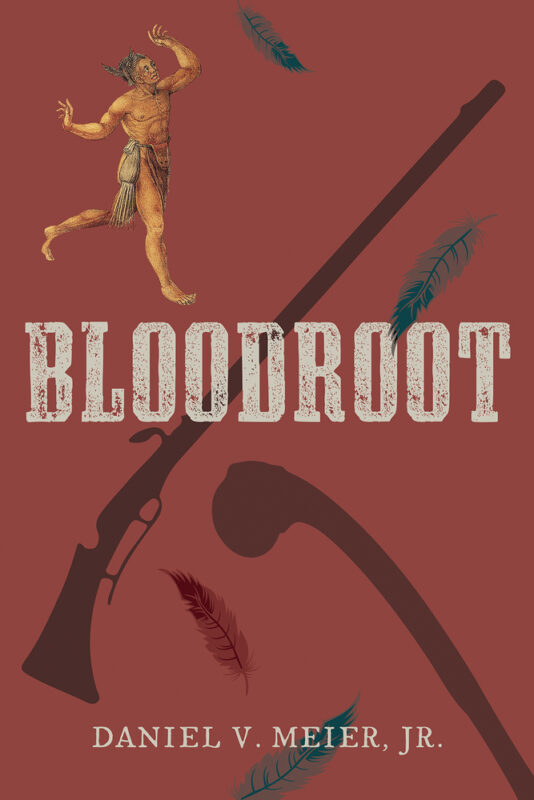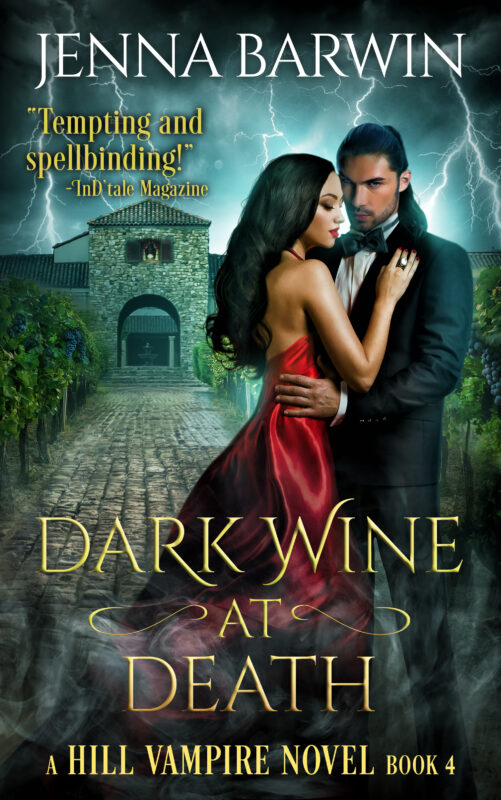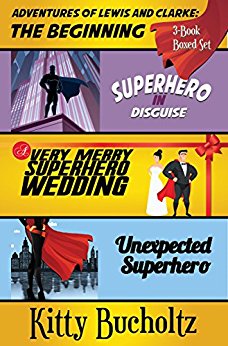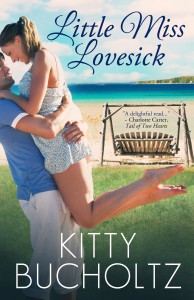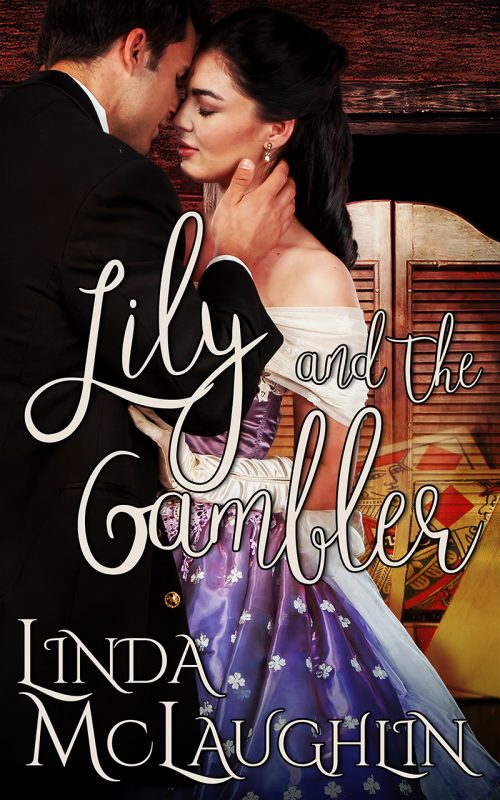March Featured Authors: Will Zeilinger and Janet Elizabeth Lynn
March 7, 2018 by marianne h donley in category Featured Author of the Month tagged as Janet Elizabeth Lynn, The Skylar Drake Murder Mystery Series, Will Zeilinger

Published authors Will Zeilinger and Janet Lynn had been writing individually until they got together and wrote the Skylar Drake Mystery Series. These hard-boiled tales are based in old Hollywood of 1955. Janet has published seven mystery novels, and Will has three plus a couple of short stories. Their world travels have sparked several ideas for murder and crime stories. This creative couple is married and lives in Southern California.
The Fun of a New Series by Linda O. Johnston
March 6, 2018 by Linda O. Johnston in category Pets, Romance & Lots of Suspense by Linda O. Johnston tagged as Harlequin Romantic Suspense, K-9 Ranch Rescue, series, writing
A New Series
It’s March! That means my first new book of the year, SECOND CHANCE SOLDIER, is officially available. It became available in its e-format on March 1, and today, March 6, it is also officially available in print format. I’m delighted to say, though, that I’ve seen, and signed, a copy in a store already.
As I mentioned before, SECOND CHANCE SOLDIER is the first in my new K-9 Ranch Rescue miniseries for Harlequin Romantic Suspense. I’ve had several other HRS books published and enjoyed them all, but this one is special in a couple of ways. First, of course, is that it has dogs featured in it, along with the romance–and the suspense. And second, it’s also the first in a miniseries for HRS. The second book in the series, TRAINED TO PROTECT will be an October 2018 release. Will there be more? Too early to tell, but I hope so.
I always enjoy when a new book comes out, and it’s particularly fun when it’s the first in a new series. But I have fun with later books in a series, too.
Some authors plan out all the books in a series from the first. Not me. I never know for sure how many books there will be in a series, so I simply wait and see as the series goes forward. But while doing so, I get to know the characters and their backgrounds well, so it’s never a problem to keep the series going.
My last Harlequin Nocturne paranormal romance will be published later this year. It’s the last because the whole Harlequin series is being ended, and therefore so will my miniseries for the line, the Alpha Force stories about a covert military unit of shapeshifters. I hadn’t even considered the initial story to be the first in a series at all, let alone nine books. I’d had another Nocturne published and thought it might be the first of a series, but my Harlequin editors told me to go with Alpha Force—and I have, and definitely enjoyed it.
Anyway, right now I’m excited about my K-9 Ranch Rescue story and its upcoming sequel. SECOND CHANCE SOLDIER has a handsome and damaged hero, a strong heroine… and yes, dogs!
Nothing Found
Have You Ever…Reread Your Own Book
March 5, 2018 by Tracy Reed in category Pink Pad by Tracy Reed tagged as editing, Growth, reading, writing
Happy pre-spring. It’s almost time to shed the winter gear and replace it with light weight fabrics.
A couple of months ago, after I completed my Goodreads reading goal for 2017, I got the urge to read one of my own books as a reader…a fan. It was never my intention to “edit” it. But sixty plus pages into reading the print copy, I spotted a typo. I was all set to ignore it. But then I spotted another one. When I finished, I had eight typos. Crap.
I like the story and wanted to continue reading the series. The second book was worse. It felt like the typos wouldn’t stop coming. I couldn’t believe I released a book with so many typos.
This little exercise made me aware of something…not every book is free of mistakes. As a creative, it’s difficult to wrap my head around the fact that I could have been so careless…unprofessional…and a host of other adjectives I care not to use.
So here’s my question. Have you ever read your own book for pleasure? Did you enjoy the story as much as when you wrote it?
This wasn’t the first time I’d read one of my books, but it was the first time, I experienced this many typos. I have no idea how I missed the typos.
Something amazing occurred from this exercise. I saw my growth as a writer. Of course I’m going to fix the typos. But although it’s only been a little over a year since I wrote the books, I was tempted to go back and mature them up. By that I mean, I could have gone in and changed the writing style to be reflective of my growth as a writer. But if I did that, it could effect the tone of the book and the series.
Did I enjoy the story when I read it again? Yes, I immediately wanted to read the next book in the series, which I did. I can honestly say, it’s horrible. Because the story was written when I started writing. It’s filled with so many mistakes, it’s embarrassing. Here’s the sad thing, when I wrote it, I thought it was good. Fast forward and I couldn’t even finish reading it.
It’s been a couple of weeks since I finished reading the books and I am faced with the inevetible…end the series. Or re-write the book.
What would you do?
Tracy
 A California native, novelist Tracy Reed pushes the boundaries of her Christian foundation with her sometimes racy and often fiery tales.
A California native, novelist Tracy Reed pushes the boundaries of her Christian foundation with her sometimes racy and often fiery tales.
After years of living in the Big Apple, this self proclaimed New Yorker draws from the city’s imagination, intrigue, and inspiration to cultivate characters and plot lines who breathe life to the words on every page.
Tracy’s passion for beautiful fashion and beautiful men direct her vivid creative power towards not only novels, but short stories, poetry, and podcasts. With something for every attention span.
Tracy Reed’s ability to capture an audience is unmatched. Her body of work has been described as a host of stimulating adventures and invigorating expression.
http://www.readtracyreed.com/
https://www.facebook.com/readtracyreed
https://www.bookbub.com/authors/tracy-reed
https://www.instagram.com/readtracyreed/
https://twitter.com/readtracyreed
https://www.pinterest.com/readtracyreed/
What’s in a Name?
March 4, 2018 by H. O. Charles in category Art, Cover, Design by H. O. Charles tagged as Fantansy, Pseudonym, writingI recently completed an interview where I was asked why I had chosen the pseudonym H. O. Charles, and it got me thinking.
My original reasons for choosing it were twofold: 1) To mask my true identity. Indeed, I sometimes get changed in telephone boxes, have an aversion to green rocks, and wear superfluous spectacles. That, and I was working in academia and didn’t want my terribly serious scientific work to be associated with the fiction I was writing. 2) Fantasy authors do not look and sound like the real me. They are often bearded, and bear a striking resemblance to just about every wizard trope committed to celluloid or print. Not J. K. Rowling, I hear you mumble at your screens, but she is a rarity, and as I shall soon discuss, had to publish under the gender-free initials plus surname arrangement, because… reasons. Plus, she was technically a children’s author (more on why that counts later). Compare the spectacular beards of writers of fantasy novels for adults: George R R Martin, Terry Pratchett, Robert Jordan, and Patrick Rothfuss.
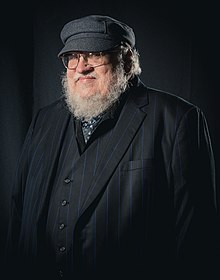
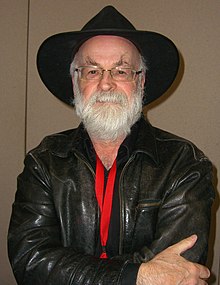
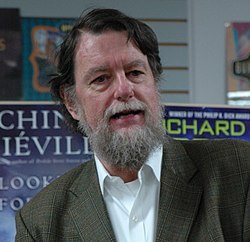

They are/were all excellent writers who did not get where they did in the absence of talent or hard work, and putting confirmation bias aside, there ARE plenty of other unbearded fantasy writers who have sold as many books as these men (Terry Brooks, Brandon Sanderson, JRR Tolkein etc.). But try as hard as I might, I do not, and cannot, look anything like these guys or the others. I should point out here how I’m defining fantasy – something closer to high fantasy, set in a pseudo-medieval setting, and with epic length novels that make up a series. Pratchett played fast and loose with the genre, but that was part of what made his work…well, work. Therefore, how can someone who doesn’t ‘fit’ hope to join the fantasy author club that is so overwhelmingly male, Gandalf-haired, and white?
We are fortunate to live in an age of increasing awareness about differences, our own attitudes to them, and the barriers those differences can create. However, there are some implicit assumptions that have grown up around book genres that still pervade and will continue to do so because it’s a business of selling. If I were to tell you there was a new fantasy novel out from a major publishing house, and that the author was young and female, you would probably guess that this novel was either urban or paranormal fantasy rather than high, and that it would feature a female protagonist upon the cover. You would guess this because of the books we tend to see on sale, and thus we do not have the expectation of young, female writers in the high fantasy genre, but we do have that expectation in urban and paranormal fantasy. Regarding the female characters on front covers, isn’t it interesting how Neil Gaiman, Jasper Fforde, and China Mieville almost never have their male protagonists upon their front covers? A publisher’s decision, for sure, but it makes me wonder how this works in terms of audience selection and preconception.
Then there’s the romance aspect. Writing and reading about romance are seen as innately feminine activities, and the concept of a romance by a female author has become so firmly ingrained that male romance writers will operate under female pseudonyms. When a woman writes fantasy, I would argue that a typical reader, before turning the first page, would expect it to be inherently more romantic than if a man had written it. But in truth, there is plenty of romance to be found in fantasy novels written by men. In fact, just about all of them contain a romantic subplot. But our preconceptions colour how we read everything.
A 2014 study at Goodreads found that readers preferred reading the work of authors from their own gender. I wonder if that is because men are expected to write in a genre that men are expected to read, and vice versa, OR if we genuinely gravitate to authors we feel a connection to. And if the first is true, I wonder if the publishers continue to reinforce such patterns because it is a business model that has always worked. If it is the second, then it might explain why fewer authors submit their work to publishers in genres where they are already under-represented.
Within my own readership, I have found that reviewers, where their names are gendered (I realise I’m making assumptions here on how they identify, but then I’m generalising anyway), tend to identify me as male if they happen to be male, and female if they happen to be male. Not only is it intensely fascinating to me that they believe they have identified my gender, but also that no one can agree on it! Does it reflect what they want to see in an author and is their assumption why they picked up my book, or is it that they project themselves in their own mental image of the author (which is how empathy works)?
A third possibility is that they thought my subject matter or manner of writing indicated I belonged to either the male or female gender. Interestingly, there is an algorithm that will try to predict your binary gender from the pronouns and nouns you use in your writing. Find it here. I pasted in several of my books, and each time it decided I was ‘weak male’. I’m not telling you what I truly am…
It would be interesting to hear what your results are, so do add them to the comments section below.
Back to romance – the idea that women are more preoccupied with romantic stories than men has always struck me as completely nonsensical. If men were not interested in romance in the real world, then none would get married, yet weddings keep on happening. If male readers are interested in romance in the real world, then why not in fiction? It strikes me that the disjuncture between a male readership and a ‘feminine’ genre has more to do with fashion and cultural bias than any inherent differences. Indeed, it is my belief that broadly the same things worry us, interest us, frighten and excite us, since we are human before we are of any particular gender, and that male and female preoccupations are entirely arbitrarily assigned. A writer would not get far with either characterisation or plot if they believed men were only after sex and women were only interested in having children, and that the two minds could never find common ground. Men are from earth; women are from earth.
I mentioned JK Rowling earlier, though scarcely a discussion about authors comes up without her name being mentioned, and I also noted it in the context of children’s books. This is one genre where author genders are more evenly balanced – a quick appraisal of the top 100 on Amazon will demonstrate this (and Rowling occupies about 20 of the spots in the top 100 children’s books!). It is one of those genres where a woman would not feel she was an exception to the gender rule in applying to be published, but whether the proportions of applicants carry through to publications in that genre is unknown to me. What was revealed only recently, however, was that the characters depicted in children’s books tend to contain heroes and villains who are overwhelmingly male and masculine. Female characters, on the other hand, were entirely missing from a fifth of the books studied. Why is it then, that even the female authors were writing about males more often than females?
I suspect it has more to do with what we read, and how we subconsciously reproduce a part of it. Rowling’s novels, to unfairly pull out one example, owe much to Ursula Le Guin’s Earthsea series, which again feature a male hero and villain, and if every other children’s author grew up reading children’s novels featuring male heroes, then perhaps it is not surprising that change has been slow to take place. Perhaps this is a bit of social reproduction, but with gender instead of class, in action.
There is evidence to suggest it helps to have a male author name in certain genres (I do not know which genre Nichols’ book was submitted under – someone please let me know if you do). This article describes how Catherine Nichols received eight and a half times more responses for her manuscript when she pretended her name was George than she did when she was Catherine. Both the male and female agents were guilty of preferring George over Catherine. And yet, there are plenty of male authors out there who have chosen neutral or even female names in order to connect with their audience or fit with their genre.
For these reasons (and the beard problem), I shall remain as a genderless H. O. Charles, or Hadleigh, if you prefer, and for these reasons my profile picture shall remain as a drawing rather than a photo. But what do you think? Is there a certain look or persona an author should adopt in order to publish within a particular genre? Does your gender and the gender of your characters help or hinder you? How male or female was your writing in the gender guesser?!
Some more reading:
https://jezebel.com/homme-de-plume-what-i-learned-sending-my-novel-out-und-1720637627
https://www.theguardian.com/books/2017/may/11/are-things-getting-worse-for-women-in-publishing
Visiting the Scene or Vacation? by Will Zeilinger
March 3, 2018 by Janet Elizabeth Lynn and Will Zeilinger in category Partners in Crime by Janet Elizabeth Lynn & Will Zeilinger tagged as mysteries, research, writing partners My wife Janet Lynn, and I have been writing together for several years and are just completing our fourth co-written murder mystery novel. Since our stories are set in the 1950s, we have to research many of the locations that have either changed or no longer exist. And because our storylines take us to distant places, we travel to many of those sites in order to get it right. Google Earth is great, and the web is invaluable, but there is only so much you can learn from these resources. Nothing beats being there in person. This works out great because we both love to travel.
My wife Janet Lynn, and I have been writing together for several years and are just completing our fourth co-written murder mystery novel. Since our stories are set in the 1950s, we have to research many of the locations that have either changed or no longer exist. And because our storylines take us to distant places, we travel to many of those sites in order to get it right. Google Earth is great, and the web is invaluable, but there is only so much you can learn from these resources. Nothing beats being there in person. This works out great because we both love to travel.
For our first Skylar Drake Mystery, SLIVERS OF GLASS, we traveled to the northern California wine country, including Sonoma County, Bodega Bay and Santa Rosa.
STRANGE MARKINGS took us to Molokai where we researched pre-statehood Hawaii. This was the only Hawaiian island that wasn’t overly developed and gave us an idea of Hawaii before all the high-rise buildings. 
Las Vegas in the mid-1950s was the setting for DESERT ICE. Most of our time was spent in the Special Collections at the UNLV Library, the Clark County Library and the Nevada State Museum. The Mob Museum to really give us the flavor of Vegas in 1955. We also had the opportunity to interview a Las Vegas Dancer and the daughter a notorious mobster who lived there in the 1950s.
When we tell friends and family about our trips, they turn green with envy and mistakenly think we are on a vacation. Nothing could be further from the truth, although we do learn things a “normal” tourist wouldn’t. We are entertained by the people we meet and the historical tidbits that come to light during our research.
 Success in our research may stem from the questions Janet asks hotel staff, restaurant wait staff and sometimes random residents we meet on the street. She’ll ask, “If you needed to dump a dead body around here… where would you put it?” The result is one of two different reactions. First: The person will take a couple of steps back and look around for an escape route. Or Second: They’ll provide specific locations of abandoned buildings, intersections, cemetery names, coves, cliffs or other places. This can seem a bit disconcerting, because that response means they’ve thought about this in depth. There are times I’ve felt like taking a couple of steps back myself.
Success in our research may stem from the questions Janet asks hotel staff, restaurant wait staff and sometimes random residents we meet on the street. She’ll ask, “If you needed to dump a dead body around here… where would you put it?” The result is one of two different reactions. First: The person will take a couple of steps back and look around for an escape route. Or Second: They’ll provide specific locations of abandoned buildings, intersections, cemetery names, coves, cliffs or other places. This can seem a bit disconcerting, because that response means they’ve thought about this in depth. There are times I’ve felt like taking a couple of steps back myself.
Our most recent book is a prime example. SLICK DEAL is set in 1956 on Santa Catalina Island. (only twenty-something miles off the coast of southern California.) We did exhaustive online research before consulting the Long Beach Main Library. We happened to be on Catalina Island for other reasons a few months ago and stopped in at the Visitors Center. They also referred us to the Avalon branch of the L.A. County Library , which happened to be closed at the time we visited. We next visited the Chamber of Commerce, who, once again, referred us to the Library. This wasn’t going to work, so we visited the Catalina Conservancy. Guess where they referred us. Yes, the Library. We thought we had it solved when we went to the Catalina Island Museum. Again, they said, to try the Library. This prompted another visit to the Island when the Library was open. We scheduled it during the month our story took place and many questions were answered. The staff was helpful and even provided white cotton gloves so we could rummage through their archives.
 Some of the most interesting facts came from the guide at the Avalon Casino “Frankie of Avalon,” who grew up on Catalina. There was also a fellow at the golf-cart rental shop, and a couple of waiters. Does that sound like a relaxing vacation?
Some of the most interesting facts came from the guide at the Avalon Casino “Frankie of Avalon,” who grew up on Catalina. There was also a fellow at the golf-cart rental shop, and a couple of waiters. Does that sound like a relaxing vacation?
Once we visited these locations, we were struck with inspiration and appreciation for the locales.
Online research is great, but physically visiting the places where your story takes place can supply all your senses with sights, sounds, smells, tastes, and the personality of the people you meet. As a couple writing together, we have a great time and, after four books, we’re still married.
Affiliate Links
A Slice of Orange is an affiliate with some of the booksellers listed on this website, including Barnes & Nobel, Books A Million, iBooks, Kobo, and Smashwords. This means A Slice of Orange may earn a small advertising fee from sales made through the links used on this website. There are reminders of these affiliate links on the pages for individual books.
Search A Slice of Orange
Find a Column
Archives
Featured Books
DARK WINE AT DEATH
A seductive spy. A powerful vampire. A traitor in their midst...
More info →ADVENTURES OF LEWIS AND CLARK BOXED SET
She thought marriage would be sex, laundry, and a mortgage.
Girl, was she wrong.
Newsletter
Contributing Authors
Search A Slice of Orange
Find a Column
Archives
Authors in the Bookstore
- A. E. Decker
- A. J. Scudiere
- A.J. Sidransky
- Abby Collette
- Alanna Lucus
- Albert Marrin
- Alice Duncan
- Alina K. Field
- Alison Green Myers
- Andi Lawrencovna
- Andrew C Raiford
- Angela Pryce
- Aviva Vaughn
- Barbara Ankrum
- Bethlehem Writers Group, LLC
- Carol L. Wright
- Celeste Barclay
- Christina Alexandra
- Christopher D. Ochs
- Claire Davon
- Claire Naden
- Courtnee Turner Hoyle
- Courtney Annicchiarico
- D. Lieber
- Daniel V. Meier Jr.
- Debra Dixon
- Debra H. Goldstein
- Debra Holland
- Dee Ann Palmer
- Denise M. Colby
- Diane Benefiel
- Diane Sismour
- Dianna Sinovic
- DT Krippene
- E.B. Dawson
- Emilie Dallaire
- Emily Brightwell
- Emily PW Murphy
- Fae Rowen
- Faith L. Justice
- Frances Amati
- Geralyn Corcillo
- Glynnis Campbell
- Greg Jolley
- H. O. Charles
- Jaclyn Roché
- Jacqueline Diamond
- Janet Lynn and Will Zeilinger
- Jeff Baird
- Jenna Barwin
- Jenne Kern
- Jennifer D. Bokal
- Jennifer Lyon
- Jerome W. McFadden
- Jill Piscitello
- Jina Bacarr
- Jo A. Hiestand
- Jodi Bogert
- Jolina Petersheim
- Jonathan Maberry
- Joy Allyson
- Judy Duarte
- Justin Murphy
- Justine Davis
- Kat Martin
- Kidd Wadsworth
- Kitty Bucholtz
- Kristy Tate
- Larry Deibert
- Larry Hamilton
- Laura Drake
- Laurie Stevens
- Leslie Knowles
- Li-Ying Lundquist
- Linda Carroll-Bradd
- Linda Lappin
- Linda McLaughlin
- Linda O. Johnston
- Lisa Preston
- Lolo Paige
- Loran Holt
- Lyssa Kay Adams
- Madeline Ash
- Margarita Engle
- Marguerite Quantaine
- Marianne H. Donley
- Mary Castillo
- Maureen Klovers
- Megan Haskell
- Melanie Waterbury
- Melisa Rivero
- Melissa Chambers
- Melodie Winawer
- Meriam Wilhelm
- Mikel J. Wilson
- Mindy Neff
- Monica McCabe
- Nancy Brashear
- Neetu Malik
- Nikki Prince
- Once Upon Anthologies
- Paula Gail Benson
- Penny Reid
- Peter Barbour
- Priscilla Oliveras
- R. H. Kohno
- Rachel Hailey
- Ralph Hieb
- Ramcy Diek
- Ransom Stephens
- Rebecca Forster
- Renae Wrich
- Roxy Matthews
- Ryder Hunte Clancy
- Sally Paradysz
- Sheila Colon Bagley
- Simone de Muñoz
- Sophie Barnes
- Susan Squires
- T. D. Fox
- Tara C. Allred
- Tara Lain
- Tari Lynn Jewett
- Terri Osburn
- Tracy Reed
- Vera Jane Cook
- Vicki Crum
- Writing Something Romantic
Affiliate Links
A Slice of Orange is an affiliate with some of the booksellers listed on this website, including Barnes & Nobel, Books A Million, iBooks, Kobo, and Smashwords. This means A Slice of Orange may earn a small advertising fee from sales made through the links used on this website. There are reminders of these affiliate links on the pages for individual books.


























